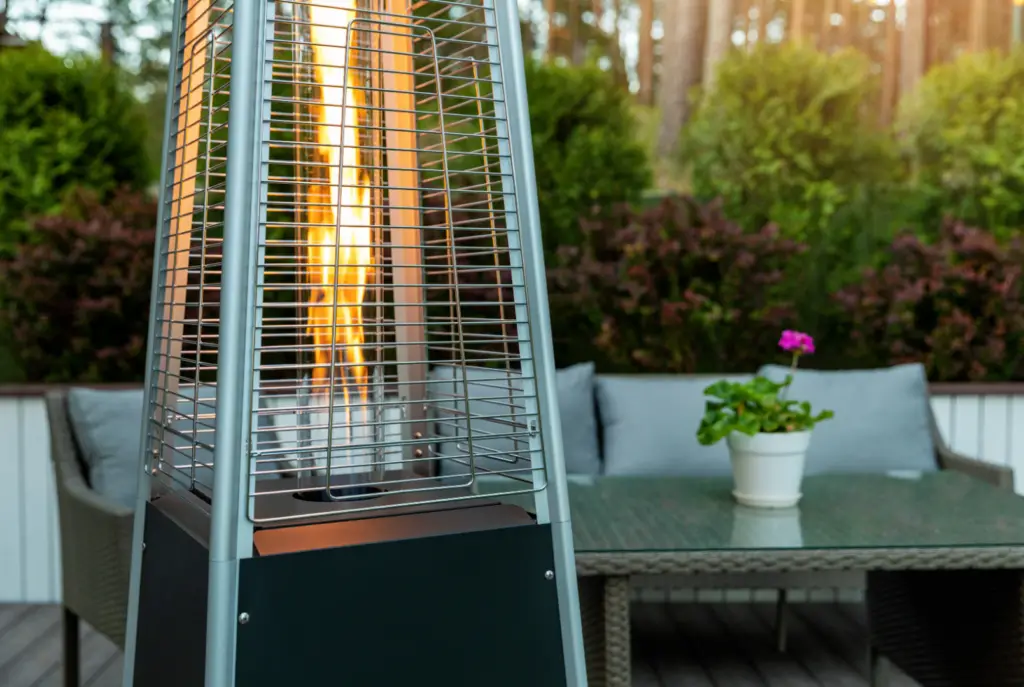
Gas lines going into the house are top of mind during the winter months. This is when most families are thinking of gas-powered furnaces, water heaters, and fireplaces. When spring rolls around, most people focus on the electric bill, putting thoughts of natural gas usage on the back burner.
However, there are several outdoor appliances and features that run on natural gas, including grills, patio heaters, fire tables, pool heaters, and even outdoor lighting. If you have any of these in your yard, you need to make sure your gas lines are in good working order before firing them up for the next neighborhood cookout.
The Beauty of Natural Gas
Several benefits are associated with using natural gas instead of other energy sources. For one thing, it’s usually more cost-effective than electricity, especially for households with four or more gas appliances. It also keeps the place cleaner. Think about the mess a charcoal grill makes. Installing a gas grill removes charcoal and burnt embers from the equation. Gas grills can also replace propane-powered grills, eliminating the need to store propane canisters on the property.
Natural gas burns cleanly and efficiently, reaching the house at more than three times the efficiency of electricity and providing up to 90% usable energy. That can’t be said about other energy sources, some of which only provide 78% usable energy. Very little natural gas is wasted, which means you get your money’s worth.
Gas Line Maintenance is Critical
With all that said, when something goes wrong with a gas line, it can be an extremely dangerous situation. If you use natural gas to power outdoor appliances and landscape features in the spring, it’s a good idea to get the gas lines inspected at the beginning of the season. The best way to do this is to call a licensed plumbing company to come out and do an inspection. They’re the pros when it comes to gas lines; if there are any issues, they’ll advise you on what needs to be done to remedy the situation. Developing a good working relationship with a trusted plumbing company — like Beemer Plumbing — is worth the time and effort.
While you’re waiting for someone to inspect the lines, you can start the process yourself by walking around the yard with your eyes, ears, and nose open for signs of trouble. Here are some of the most common signs that a gas line needs to be repaired.
Rotten eggs. Keep your nose open. If you smell rotten eggs and can’t identify the source of the smell, you may have a gas leak. Mark the spot so you can let your plumber know.
Hissing. Keep your ears open for unidentifiable hissing sounds. This may be a signal that gas is escaping from the gas line.
Dead plants. Keep your eyes open for dead plants in or around the house. If you can’t identify the cause, a leaky gas line could be the problem.
Rust or corrosion. Inspect the gas fixtures if possible. Let your plumber know if you spot any rust or corrosion on them. There may be a gas leak.
Enjoy a Safe Spring
Spring weather is perfect for all kinds of outdoor activities with friends and neighbors. There’s nothing like freshly grilled hamburgers eaten with friends on a cool spring evening — unless it’s a dip in a heated pool. Throw in some gas landscape lights, and you have the perfect outdoor event!
Beemer Plumbing wants to ensure that all your spring activities come off with no surprises. We specialize in every aspect of residential plumbing, including gas line repair, installation, and inspection. We’re the preferred gas line plumbers for many homeowners in Johnson County and other parts of the Kansas City metro area.
Give us a call at 913-952-7701 to schedule an appointment or request a free quote for gas line services in Kansas City. Then get ready to enjoy your spring outings knowing your gas lines are in good shape for the rest of the year!